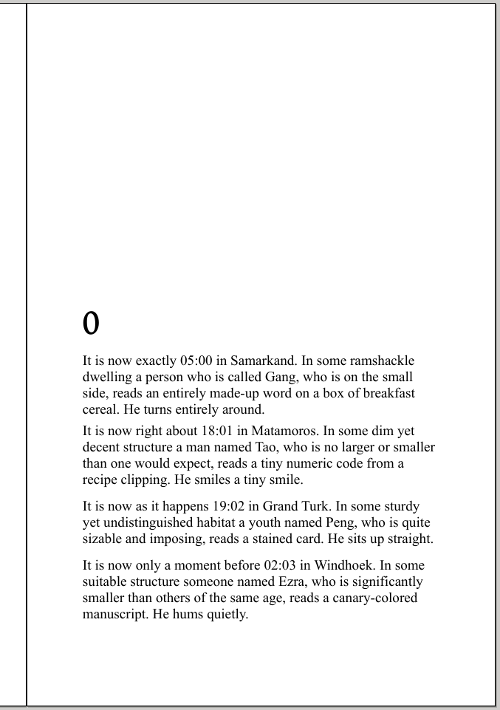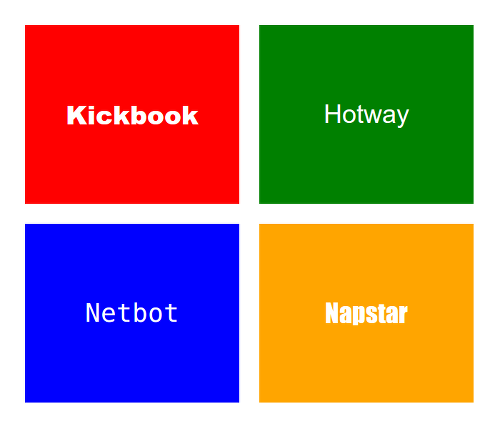There are some things I absolutely must mention at this point, to highlight certain of the many interesting outcomes from NaNoGenMo (National Novel Generation Month):
Alice’s Adventures in the Whale, one of two novels created by Leonard Richardson by computationally replacing all the dialog in one novel with the dialog in another:
>Alice was beginning to get very tired of sitting by her sister on the bank, and of having nothing to do: once or twice she had peeped into the book her sister was reading, but it had no pictures or conversations in it, “Can’t sell his head?–What sort of a bamboozingly story is this you are telling me?” thought Alice “Do you pretend to say, landlord, that this harpooneer is actually engaged this blessed Saturday night, or rather Sunday morning, in peddling his head around this town?”
…
>Presently she began again. “Ka-la! Koo-loo!” (she was rather glad there WAS no one listening, this time, as it didn’t sound at all the right word) “Stand up, Tashtego!–give it to him!” (and she tried to curtsey as she spoke–fancy CURTSEYING as you’re falling through the air! Do you think you could manage it?) “Stern all!”
…
>”My God! Mr. Chace, what is the matter?” said poor Alice, and her eyes filled with tears again as she went on, “we have been stove by a whale.” cried Alice, with a sudden burst of tears, “NARRATIVE OF THE SHIPWRECK OF THE WHALE SHIP ESSEX OF NANTUCKET, WHICH WAS ATTACKED AND FINALLY DESTROYED BY A LARGE SPERM WHALE IN THE PACIFIC OCEAN.”
…
>CHAPTER V. Advice from a Caterpillar
>
>The Caterpillar and Alice looked at each other for some time in silence: at last the Caterpillar took the hookah out of its mouth, and addressed her in a languid, sleepy voice.
>
>”I say, pull like god-dam,” said the Caterpillar.
>
>This was not an encouraging opening for a conversation. Alice replied, rather shyly, “There she slides, now! Hurrah for the white-ash breeze! Down with the Yarman! Sail over him!”
Leonard’s other submitted novel used Pride and Prejudice (and Through the Looking Glass). Along similar lines, you may be interested in seeing what Pride and Prejudice looks like without any dialog.
Early in the month, Zarf (Andrew Plotkin) submitted a generated novel that is entirely dialog: Redwreath and Goldstar Have Traveled to Deathsgate.
Ian Renton generated Doctor Who fan fiction using the technique of Bayseian poisoning, which is popular in spam generation. It’s only the only fanficlicious novel; see the generated Austenesque novels of jiko.
I was implicated in inspiring Nif, a palindromic 50,000-word+ novel, the second generated novel submitted (early in the month) by catseye. A remixed and extended version was done by Michael Paulukonis.
Don’t miss Aaron Reed’s Agressive Passive, which details conversation between six housemates about maintaining the cleanliness of their domicile.
And finally, my entry is World Clock, which briefly describes something happening, at some location around the world, at each minute of a day.
The overall “site” for NaNoGenMo, which was the fervent brainchild of Darius Kazemi, is, by the way, this humble GitHub repository.




